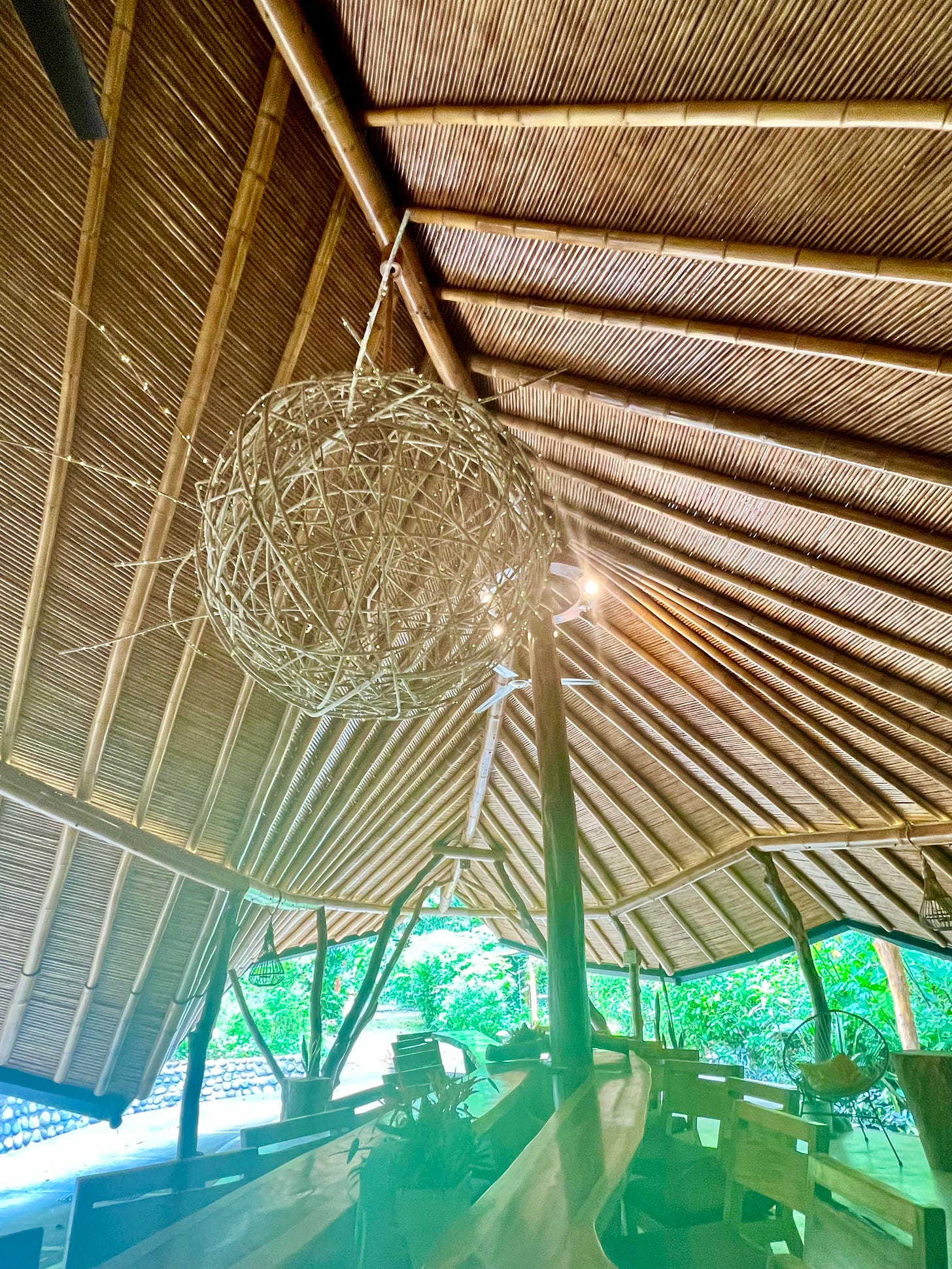Hospicing Effective Altruism
What's wrong with longtermism?
At the moment, I am visiting a retreat center/community in Costa Rica, Brave Earth, that friends of mine have built, applying anarchist, animist, and permaculture/syntopic principles. I have been hearing about the planning and construction of it for the last seven years, but never made it here until now. They did a wonderful job! As I write this, I am sitting in the cafeteria area, built out of bamboo and shaped like a gigantic Tabacon leaf. The level of applied design intelligence is extraordinary. The community already grows more than 50% of the food they eat, with the intention to reach close to 100% in the next few years.
I have a number of friends around the world creating “post-capitalist” enclaves, designed to be used and enjoyed now, but also with an eye on a possible post-collapse future. Obviously, it takes a good deal of capital, skill, and luck — as well as a massive amount of work and will — to construct something this extensive and, hopefully, enduring.
Before coming here, I spoke at a small conference for investors, philanthropists, and entrepreneurs in psychedelics, AI, crypto, longevity, and related areas held at Blue Spirit in Nosara. One of the main intellectual influences on many of the participants there is effective altruism, or longtermism. I’ve heard about effective altruism for a while and read a bit about it, but I hadn’t dug deep into the subject. The leading proponent of effective altruism is Oxford moral philosopher William MacAskill, author of a number of books including his latest, What We Owe the Future. Fellow travelers include Nick Bostrom (Superintelligence) and Toby Ord (The Precipice: Existential Risk and the Future of Humanity).
For MacGaskill, longtermism is “the idea that positively influencing the longterm future is a key moral priority of our time. Longtermism is about taking seriously just how big the future could be and how high the stakes are in shaping it.” MacAskill’s philosophy was a major influence on the disgraced crypto billionaire Sam Bankman-Fried, whose net worth plunged from an astounding $26 billion to zero in a few months when it was discovered he was less a futuristic financial genius than a con man who had orchestrated a fantastically convoluted Ponzi scheme. Bankman-Fried used effective altruism as his rationale for amassing as much money as possible — in order to give it away. Instead it all vaporized in a Bahamian bong cloud.
‘The Grift Brothers’, an excellent exposé from TruthDig, explores their alliance as well as the questionable ethics behind the effective altruism project.
One book currently sparking dialogue in this anarchist community is Hospicing Modernity by Vanessa Machado de Oliveira. I spent a few days reading these two books side by side: What We Owe the Future versus Hospicing Modernity. The mash-up gave me intellectual whiplash.
Keep reading with a 7-day free trial
Subscribe to Liminal News With Daniel Pinchbeck to keep reading this post and get 7 days of free access to the full post archives.




